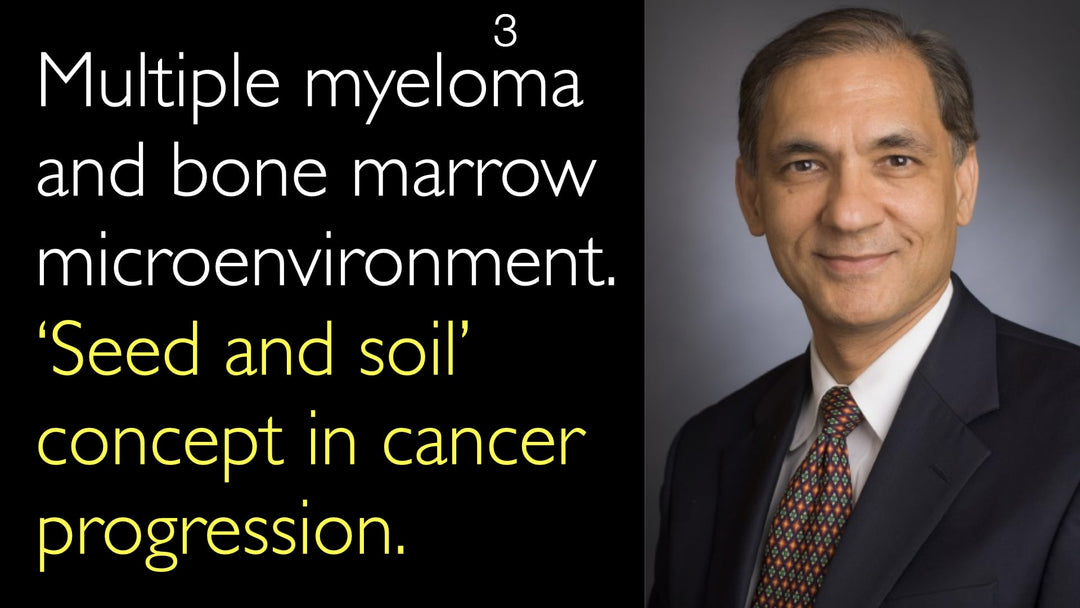薬理ゲノム学と喘息の分野をリードするエステバン・バーチャード医学博士が、アジア系集団における特定の遺伝子変異が、抗てんかん薬カルバマゼピンによるスティーブンス・ジョンソン症候群の発症リスクを劇的に高める仕組みについて解説します。博士は、この生命を脅かす重篤な皮膚反応のリスクを最大4,000倍も高めるHLA-B*1502対立遺伝子を特定した画期的な臨床研究について詳述。さらに、この副作用を未然に防ぐことができる簡便かつ低コストな遺伝子検査の導入を提唱しています。これは、精密医療が実際に成果を上げた代表的な成功例の一つです。
カルバマゼピンによるスティーブンス・ジョンソン症候群の予防と遺伝子検査
セクションへ移動
- アジア系民族とSJSリスク
- HLA-B*1502遺伝子変異
- スティーブンス・ジョンソン症候群の症状
- 台湾での臨床試験の画期的成果
- 遺伝子検査による解決策
- FDA警告と公衆衛生への影響
- 精密医療の実践例
- 全文書き起こし
アジア系民族とSJSリスク
カルバマゼピン(商品名:テグレトール、カルバトロール、エクエトロ)は、広く処方されている抗てんかん薬です。エステバン・バーチャード医学博士は、アジア系民族がこの薬剤による重篤な副作用に対して特別な遺伝的感受性を持つことを指摘しています。このリスクは中国、シンガポール、マレーシア、台湾、タイ出身者で特に高く、問題となる副作用はスティーブンス・ジョンソン症候群(SJS)で、致死的となる可能性があります。
HLA-B*1502遺伝子変異
このリスク上昇の原因は、HLA-B*1502対立遺伝子として知られる特定の変異です。この遺伝子は免疫機能に関わるHLA遺伝子座に位置します。エステバン・バーチャード医学博士によれば、この対立遺伝子の保有は有害反応の強力な予測因子となります。変異自体は疾患を引き起こしませんが、保有者がカルバマゼピンを服用すると致死的な免疫反応が引き起こされる可能性があります。
スティーブンス・ジョンソン症候群の症状
スティーブンス・ジョンソン症候群とその重症型である中毒性表皮壊死症(TEN)は、生命を脅かす皮膚反応です。バーチャード博士はこれを「患者の皮膚が内外で剥離する状態」と説明します。重篤な皮膚剥離は大量の体液喪失、激しい疼痛、致死的な感染症のリスクをもたらし、治療が困難な重大な医療緊急事態となります。
台湾での臨床試験の画期的成果
この発見のきっかけとなったのは、台湾で実施された画期的な臨床試験でした。エステバン・バーチャード医学博士は、臨床試験が多様な集団で実施されないことが多い中、この研究の重要性を強調します。この研究は後に権威ある学術誌『ネイチャー』に掲載され、HLA-B*1502対立遺伝子が漢民族やその他のアジア系集団におけるカルバマゼピン関連SJS発症リスクを4,000倍高める遺伝子マーカーであることを明らかにしました。
遺伝子検査による解決策
予防的遺伝子検査の導入は、薬物有害反応の防止において画期的な成功を収めています。エステバン・バーチャード医学博士は、検査が驚くほどアクセスしやすく安価(約10セント)である点を強調します。カルバマゼピン処方前にアジア系患者のHLA-B*1502対立遺伝子をスクリーニングすることで、医師はSJS症例を完全に回避し、より安全な代替抗てんかん薬を選択できます。
FDA警告と公衆衛生への影響
台湾での試験結果は公衆衛生に大きな影響を与え、米国食品医薬品局(FDA)の対応につながりました。FDAはカルバマゼピンの包装に、同局で最も強い安全警告である黒枠警告を発出しました。この警告では、スティーブンス・ジョンソン症候群のリスクを軽減するため、アジア系民族は治療開始前にHLA-B*1502対立遺伝子の検査を受ける必要があると明記されています。
精密医療の実践例
本症例は、治療を個人の遺伝子構成に合わせる精密医療の典型例です。エステバン・バーチャード医学博士はこのアプローチを強く支持し、自身の子供がカルバマゼピンを必要とする場合には検査を要求すると述べています。簡便で安価な遺伝子検査が生命を脅かす転帰を防ぐことで、患者安全性を革新し、診断と治療計画において遺伝的民族背景を考慮する重要性を浮き彫りにしています。
全文書き起こし
エステバン・バーチャード医学博士: アジア人におけるテグレトールの副作用には、致死的となり得る皮膚剥離症であるスティーブンス・ジョンソン症候群が含まれます。一つの変異がテグレトール(カルバマゼピン)のこの副作用リスクを4,000倍増加させます。遺伝子検査の費用は10セントです。
カルバマゼピンはカルバトロール、エクエトロ、テグレトールなどの商品名で広く処方される抗てんかん薬です。アジア系民族はHLA-B*1502対立遺伝子と呼ばれる特別な変異を持ち、これがテグレトールの副作用の高いリスクを予測します。
中国、シンガポール、マレーシア、台湾、タイ出身者はスティーブンス・ジョンソン症候群のリスクが高いです。これは精密医療の実践例です。
アントン・チトフ医学博士: 個人の遺伝的祖先は特定の疾患発症リスクにどのように影響しますか?遺伝的祖先は一般的な抗てんかん薬であるカルバマゼピンの重篤な副作用リスクに影響を与えます。それについてお話しください。
エステバン・バーチャード医学博士: 小児てんかん治療に一般的に使用されるカルバマゼピンでも同様の状況があります。これはてんかん治療で最もよく処方される薬剤の一つです。臨床試験は通常、非ヨーロッパ系の遺伝的祖先を持つ集団では実施が難しいため行われません。
アジア系民族を対象とした臨床試験が台湾で実施されました。科学者たちはHLA遺伝子座上に、生命を脅かす状態であるスティーブンス・ジョンソン症候群として知られるカルバマゼピンの重篤な副作用への感受性を高める遺伝子を発見しました。
スティーブンス・ジョンソン症候群患者の皮膚は内外で剥離します。この遺伝子はアジア系の遺伝的祖先を持つ集団で一般的であるため、アジア系の遺伝的祖先を持つ場合、カルバマゼピンによるてんかん治療の副作用としてスティーブンス・ジョンソン症候群を発症するリスクが4,000倍高くなります。
漢民族はSJSおよび中毒性表皮壊死症のリスクが高いです。この臨床試験の結果、アジア全域のてんかん患者でカルバマゼピン投与を計画する場合、遺伝子検査が必須となりました。このカルバマゼピン遺伝子検査は処方前に実施されるため、アジア人てんかん患者におけるスティーブンス・ジョンソン症候群の全症例を防止しました。
アントン・チトフ医学博士: これは大きな成果です。スティーブンス・ジョンソン症候群は致死的となり得る疾患であり、治療が困難な患者人生における重大な劇的な事象です。カルバマゼピンは世界中のてんかん患者に頻繁に処方されます。
エステバン・バーチャード医学博士: はい、この遺伝子検査は重要です。患者が完全なアジア系でなくても、その特定の遺伝子にアジア系の遺伝的祖先を持ち、スティーブンス・ジョンソン症候群への感受性がある可能性があります。そのような患者はてんかん治療のためにカルバマゼピンを服用する際、スティーブンス・ジョンソン症候群発症リスクが4,000倍増加します。この臨床試験は公衆衛生に大きな影響を与えました。
その科学的臨床試験は『ネイチャー』誌に掲載され、公衆衛生に重要な影響を与えました。米国FDAはカルバマゼピン錠剤に同梱される説明書に警告を記載し、アジア系またはその特定の遺伝子位置にアジア系祖先を持つ場合、カルバマゼピン服用前にこの遺伝子検査を受ける必要があると明記しました。
アントン・チトフ医学博士: 患者はこの遺伝子検査を購入できますか?高価ですか?
エステバン・バーチャード医学博士: はい、患者はこの遺伝子検査を購入できます。そして安価です―10セントかかります。つまりカルバマゼピンを処方された患者は10セントでこの検査を受け、致死的となり得る副作用のリスクが4,000倍増加するかどうかを確認できます。これが個別化医療です。
私の子供がカルバマゼピンを必要とする場合、この遺伝子検査を要求するでしょう。アジア人におけるテグレトールの副作用には、HLA-B*1502対立遺伝子変異に関連する重篤な皮膚剥離障害であるスティーブンス・ジョンソン症候群と中毒性表皮壊死症が含まれます。








